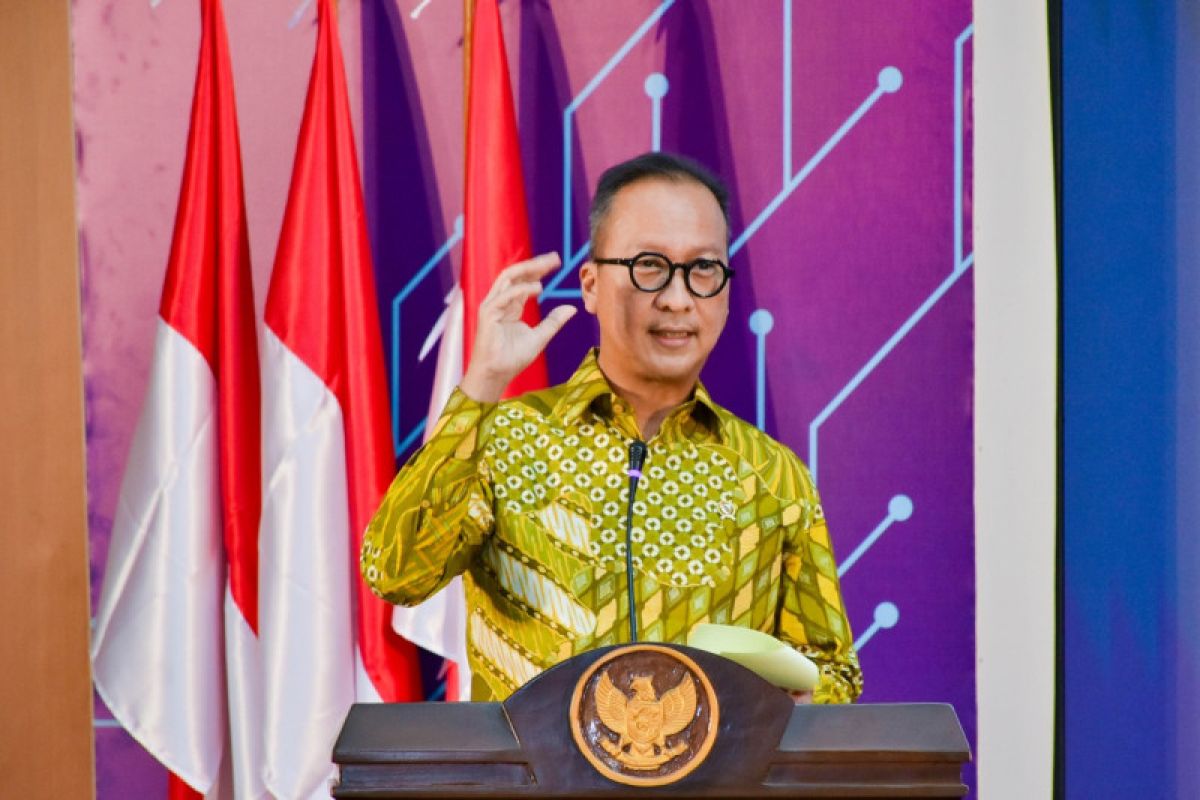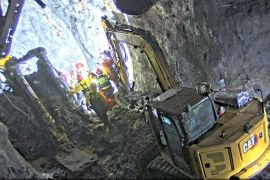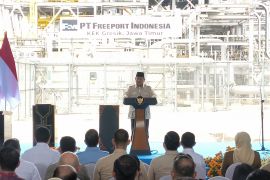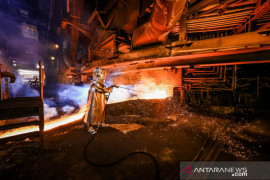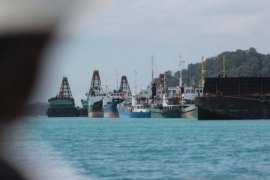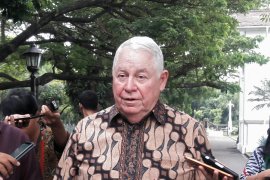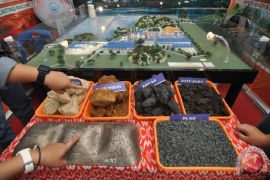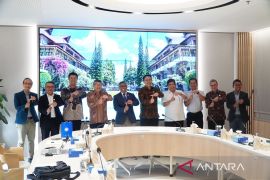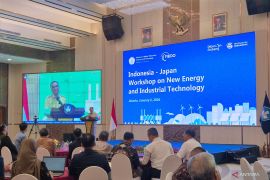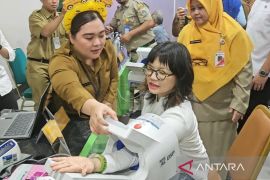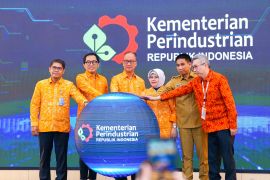This step aims to increase the added value of mining-based raw materials to realize the growth of downstream metal mineral-based industries in the countryJakarta (ANTARA) - Industry Minister Agus Gumiwang Kartasasmita stated that downstreaming of mineral-based natural resources was a real step taken by the government to make the most of metallic mineral-based natural resources.
"This step aims to increase the added value of mining-based raw materials to realize the growth of downstream metal mineral-based industries in the country," Kartasasmita noted here, Friday.
The minister remarked that support is given to encourage industrial downstreaming in increasing the added value of domestic mineral raw materials in an effort to bring higher added value as compared to exports of mineral products from mining.
Related news: September manufacturing PMI highest in 8 months: minister
This form of support includes the issuance of Law Number 3 of 2014 concerning Industry, for which the implementation is regulated in Government Regulation (PP) Number 41 of 2015 on Industrial Resources.
"The regulations include regulating the use of natural resources in an efficient, environmentally friendly, and sustainable manner," he stated.
In addition, the ministry prohibits the export of natural resources to increase the added value of the industry, strengthens the structure of the domestic industry, and regulates the guarantee of natural resources availability and distribution for domestic industries.
Kartasasmita forecasts that the number of investments in smelters processing nickel will increase in the coming year.
"One of the smelter investments that is predicted to grow bigger in the coming years is investment in nickel processing and refining," he stated.
Related news: Modification can develop domestic automotive industry: Minister
He noted that 82 nickel smelter industries were in the stages of operation, construction, and feasibility studies or planning. The smelter industry will conduct a knowledge transfer process by sending training and assistance to Indonesian workers.
Several smelters have collaborated with industrial education, training centers, and universities to train and prepare competent industrial workers, Kartasasmita stated.
Smelters are said to produce products with higher added value than mining products. Hence, advanced industries are needed to process products from smelters to bring more comprehensive supply chain from upstream to downstream, to create upstream-to-downstream industries for final products, he concluded.
Related news: Minister supports transformation of corn industry
Related news: Shipping industry helping make Indonesia maritime axis: minister
Translator: Sella Panduarsa G, Resinta S
Editor: Fardah Assegaf
Copyright © ANTARA 2022
